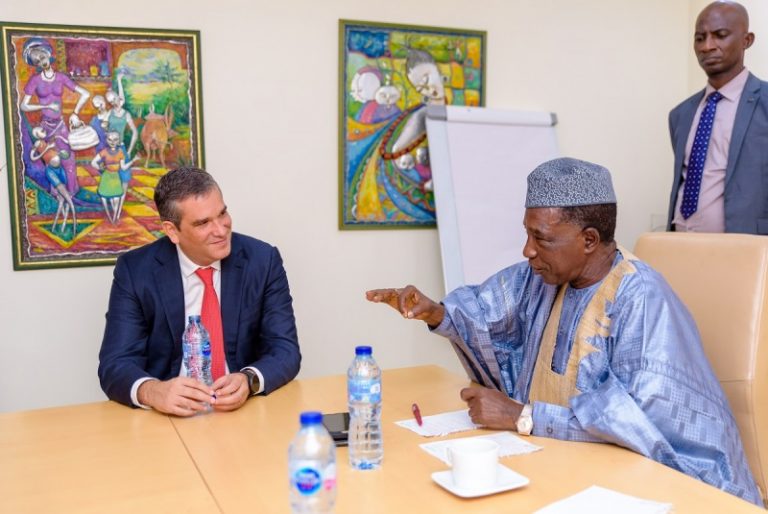
A News Analysis by Peter Ejiofor, News Agency of Nigeria (NAN)
The quest by Nestle Nigeria Plc to continue to ensure good nutrition for Nigerians and indeed the West Africa sub-region has seen it engaging the Federal Government in a collaboration that will boost agriculture and enhance quality of life.
The need for the collaboration came to the fore on Jan. 27, 2020, when the current Minister of Agriculture, Alhaji Sabo Nanono, undertook a familiarisation tour of Nestlé Nigeria Plc’s headquarters at Ilupeju, Lagos State.
For over 58 years, Nestle, one of the largest food and beverage companies in Africa, has been delighting consumers in Nigeria with high quality nutritious food products.
Receiving the minister, the Chief Executive Officer and Managing Director of Nestle Nigeria, Mr Mauricio Alarcon, said: “We are very pleased with the visit of the minister’’.
“It is through this type of interaction that we can make a difference. We thank you for this opportunity to share some of our contributions toward developing the agriculture value chain.
“What we need now, your Excellency is the support of your ministry to scale the successes we have recorded in local sourcing and in farmer capacity building.
“We believe that this collaboration with you will make a great difference in the agricultural sector.’’
He added that the company was convinced that there were great opportunities in Nigeria, especially in the agricultural sector.
“We source 80 per cent of our products locally; 100 per cent of the maize and soya in Golden Morn are sourced locally even though it is cheaper to import.
“We do this because we believe that this is the right thing to do to ensure sustainable supplies at the right quality in the long term,” Alarcon said.
Taking the minister further through Nestle’s activities in Nigeria, he explained the company’s principle of Creating Shared Value (CSV).
He noted that CSV was built on the belief that the company would be successful in the long term by creating value, both for its shareholders and for the society.
According to Alarcon, in line with this principle, Nestle is committed to providing high quality nutritious food options while investing in rural development programmes, farmer capacity building and youth empowerment.
In his remarks, the minister underscored the need for collaboration between the ministry and Nestle, saying that he believed the company had the capacity to help Nigeria address the unemployment challenges while increasing productivity of the agricultural sector.
According to him, what Nigeria does in agriculture is not only important for the country but also for the sub-region.
“Nigeria controls over 70 per cent of the regional Gross Domestic Product (GDP), so what we do in the agricultural sector is not only critical but also important to our country and neighbouring countries,’’ Nanono said.
He added: “With the population of Nigeria said to be about 200 million people today and projected to reach about 400 million people in the next three decades, we must find a solution to the challenge of feeding the ever-growing population.
“Subsistence farming is not a solution to being self-sufficient as a nation. What is important is linking up the agricultural sector with the agro-allied industry to increase productivity, while helping to address the unemployment challenges we are faced with.
“Without these linkages, we will not make much progress. This is why I am happy to have selected Nestle, a key player in this sector, as the first company I will visit and I have a reason for doing this.
“It (Nestle) is a key agro-allied industry that I think can save the country from the huge unemployment gap.”
The minister explained that the government sought to embark on the mechanisation of the agricultural value chain from input to harvest and from the farm gate to market.
He said this would be the first step toward addressing the current challenges in the agricultural sector.
Nanono noted that the intention was for this to be a private sector-driven initiative to ensure that it worked and then solicited Nestle’s involvement in this project to ensure its success.
“The next step will be to create a platform for long-term sustainable value chain development, which is what Nestle is doing right now with value chain focused local sourcing and farmer capacity building programmes.
“This is why l like this company, because this is the type of initiative that will help the country to grow,” the minister said. (NANFeatures)
**If Used, please credit the writer as well as the News Agency of Nigeria (NAN)

